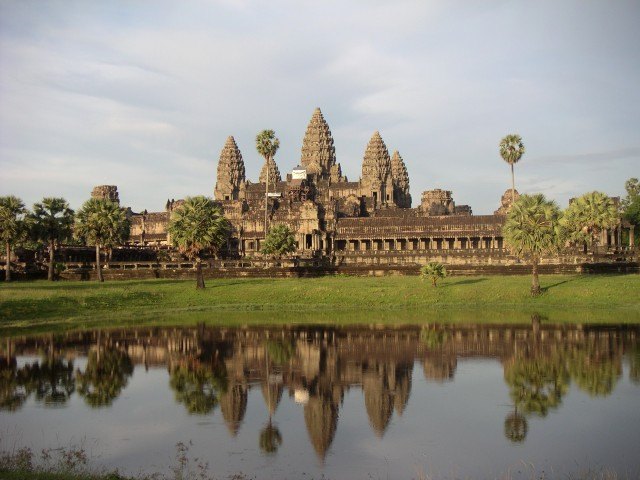Tour de France: A Test of Endurance and Spirit
The Tour de France is not merely a cycling race; it is a monumental celebration of human endurance and spirit. Each year, this grueling competition attracts elite athletes from around the globe, all of whom are willing to push their physical limits to the edge. With its stunning landscapes, challenging terrains, and a rich tapestry of history, the Tour de France has become a symbol of perseverance, showcasing the very best in human capability and resilience.
The Endurance Challenge
At its core, the Tour de France endurance challenge tests the mettle of every cyclist involved. Over three grueling weeks, competitors traverse approximately 2,200 miles (3,500 kilometers) of diverse terrain, from flat plains to the treacherous peaks of the Alps and Pyrenees. Each stage poses unique challenges, requiring riders to adapt and strategize continuously. The sheer distance alone necessitates not just exceptional physical fitness but also remarkable stamina.
Cyclists spend countless hours in training, perfecting their techniques, enhancing their cardiovascular capacity, and honing their skills in bike handling. The preparation for this monumental event often begins months, if not years, before the race. Riders undergo rigorous training regimens that push them beyond their comfort zones, incorporating interval training, hill climbs, and long-distance rides. This commitment to excellence is essential in facing the endurance test in Tour de France.
The Spirit of Tour de France Cycling
What sets the Tour de France apart from other cycling competitions is its spirit. The event epitomizes a sense of community and camaraderie among cyclists and fans alike. Throughout the race, spectators line the streets, cheering on their favorite teams and riders. This vibrant atmosphere creates an electric energy that fuels the competitors as they battle fatigue and the elements.
The spirit of Tour de France cycling is further highlighted by the teamwork involved in the competition. Cyclists often rely on their teammates for support, drafting off one another to conserve energy, and executing strategic plays that enhance their chances of success. The bond formed between team members is palpable, as they share in the triumphs and trials of the race. Each rider knows that while individual accolades are celebrated, the essence of the Tour de France lies in collaboration and mutual support.
The Role of Mental Strength
While physical endurance is paramount, mental strength plays an equally crucial role in navigating the demands of the Tour. Riders face numerous psychological hurdles throughout the race, including fatigue, self-doubt, and the pressure to perform. The ability to maintain focus and resilience in the face of these challenges is what ultimately separates the exceptional from the extraordinary.
Cyclists often employ various mental strategies to enhance their performance. Visualization techniques, for example, help riders mentally rehearse each stage, preparing them for the challenges that lie ahead. Positive affirmations and mindfulness practices also come into play, enabling athletes to stay present and manage stress effectively. This aspect of the competition emphasizes the importance of mental strength in the Tour de France, showcasing that success is as much about mindset as it is about physical capability.
Iconic Challenges and Triumphs
Throughout its history, the Tour de France has presented iconic challenges that have tested the limits of endurance and spirit. One such moment occurred during the 1986 race when Greg LeMond, after trailing behind, staged a remarkable comeback on the final day, ultimately winning the yellow jersey. This dramatic turn of events exemplified the unpredictability of the race and the mental fortitude required to overcome adversity.
Similarly, the legendary ascent of Mont Ventoux stands as a formidable symbol of the endurance challenge in the Tour de France. This steep and grueling climb has become notorious for its punishing gradients and harsh weather conditions. Many riders have faced their limits on this ascent, struggling against the elements and their own exhaustion. The stories of those who have conquered Mont Ventoux resonate throughout the cycling community, inspiring future generations to embrace the spirit of the race.
A Cultural Phenomenon
The Tour de France transcends the realm of sport, becoming a cultural phenomenon that captivates audiences worldwide. Its breathtaking scenery showcases the beauty of France, while its rich history and traditions highlight the country’s passion for cycling. The event fosters a sense of pride among locals, who eagerly participate in the festivities, creating a vibrant atmosphere that unites communities.
Moreover, the Tour has inspired countless individuals to take up cycling as a sport or a leisurely activity. The stories of perseverance, courage, and triumph resonate with people from all walks of life, motivating them to challenge themselves in their pursuits. The endurance test in Tour de France serves as a powerful reminder of what can be achieved through dedication and determination.
Conclusion
The Tour de France is a spectacular showcase of the human spirit, where endurance, mental strength, and camaraderie intertwine to create a compelling narrative. Each year, it continues to inspire not just athletes but also fans, as they witness the extraordinary feats of cyclists who dare to challenge their limits. As the race unfolds, it remains a testament to the power of perseverance, making it one of the most celebrated events in the world of sports. Whether you’re a seasoned cyclist or a casual fan, the allure of the Tour de France is undeniable, inviting all to embrace the journey of endurance and spirit.




